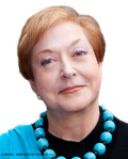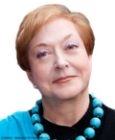
I thought I couldn't write about Tucson. For the past few years now, I've been focused on the work I do with unwell girls and women. I encourage them to step up and claim their identities as whole people who can live above and beyond chronic diseases - and yet also refuse to live in the shadows of fear, blame or shame about their illnesses which are very real and do exist. -- Even if sometimes doctors don't believe or understand. Whether well or unwell, we are ourselves. We might be broken by illness or disability but we should never allow ourselves to be defined by the status of our health.

A Tucson Sunset - September 2010. Credit: Tim Schaffner
Then it struck me our nation has conflicting identities. We are a good people, compassionate, often forgiving and embracing. Yet we are a country once turned upon itself, North against South. Somehow we came back together. The road back to a unified nation wasn't easy, and the remnants still linger, but the war did not result in two countries with border patrols. I doubt there is one dominant national chronic illness but our list of afflictions - of chronic problems -- is a long one: misunderstandings, hatred, lapses in mental health care, fears, contempt, gun control controversies, scandals of one sort or another, lies, grudges, political nastiness, discrimination, arrogance, greed, prejudice, unfairness, ideological superiority, incendiary disagreements, the inability to hear or listen to the other side -- and this is just a quick scattering of what ails us -- the list is infinite.
We are in many ways again turned against ourselves. I think it not too late to turn toward one another and go inside to reflect quietly on Tucson rather than scream and screech at each other, on the radio, on the Internet and on television. I stepped back from my own finger pointing and the need to have my views the only voice I could hear. When I did, thoughts emerged about the mystical and heart-wrenching way Tucson is connected to my hometown of New York and to the entire country as well.
Since the Tucson tragedy, I've been thinking of connections. Perhaps we all have. Tragedy does a strange thing to us. It can unite, but increasingly it divides. We want to find a reason these things happen. We assign blame in an attempt to find solutions and remedy because we want to end acts of rage and senseless murder. Ideologies and political loyalties sometimes sabotage a fundamental bond: our shared humanity.
One thing holds constant: Not one of us wants to see others killed, disabled and their families shattered in the aftermath. Each life lost is an equally valuable life. We all provide added dimension, texture and depth to those around us; some in public service, others in service to our families and charitable organizations and our work. On the 8th of January among those lost were: A devoted mother and grandmother who always tried to do good works and to help others. An older man who died shielding his wife with his own body, they were soul mates but found each other again only in later life. A judge, who believed in the law and our system of jurisprudence who was also a husband, a father, a grandfather, a colleague, a friend. A young man with a budding career in political life and public service.
And, of course, a bright and shining 9 year-old-girl -- only a few of her dreams realized, but alive and excited with the possibility of doing anything and everything - from baseball to politics.
As we know, Christina Taylor Green was a 9-11 baby. The tragedy on 9-11 took thousands of lives on the East Coast. When I first read of the date of her birth, it seemed too cruel. Then it seemed too easy to turn her into only a symbol, instead of a precious young life, lost forever. I don't want the meaning of the life of Christina Taylor Green to become reduced to this connection of dates of birth and death. But there is no question that losing her hauntingly brought 9-11 into the Tucson sunshine on the 8th of January. The 9-11 flag salvaged from the still smoldering wreckage of the Towers has become a symbol for all of us. But on that day, it was especially important for New Yorkers and our neighbors in the adjoining Tri-State area. The flag came to Christina's funeral. It belonged there. It's patched, scorched, torn, and mended but holding together. That flag says we're still one country. Chronically struggling though we might be - we still belong to one another. We must.
Congresswoman Gabby Giffords remains in the hospital in serious condition. Miraculously she survived.
The heaviest burden of grief and worry falls on the families and friends of those struck by the bullets. The palpable sorrow in Tucson is felt in the air - but we are all wounded by yet another act of violence.
In my speaking and writing, I hope to give a message of empowerment to those who struggle with many kinds of chronic illness. I believe it's possible to live above, beyond, and despite our diseases. It's never easy, but I try. I've seen how hard so many others try. I've been inspired by their determination and witnessed how their efforts, when shared, keep all of us working harder to reach out to others. I still believe my life hasn't been all bad, not at all, despite the fact a rare form of an inflammatory autoimmune disease has accompanied daily life. I believe that in time, if we are a team, cures and better treatments will come. It will happen more efficiently if we step across the boundaries of our own diseases and help with the ones we don't have but many others do.
Even after Tucson I am able to say this: I believe in this country, above what has happened and despite it all. I believe that in each of us there resides a strength combined with humility that can enable us to move beyond all we have been through. Because I know there is much we are yet to be, and that somehow we can find our way to a national "cure" that produces sanity and brings us back to love of country, acceptance of difference, faith in the beauty of what tolerance does for our democratic republic.
Fifty years ago this week, John Fitzgerald Kennedy asked the famous question that defined my generation, "Ask not what your country can do for you, ask what you can do for your country." Each person wounded or killed in Tucson on the 8th of January was a testimony to those words. They were doing something for their country; they were participating. Whatever your feelings might be about particular issues, and whether you are an Independent, Democrat or Republican, I think those words of another young president, who was struck down almost before he had begun, are worth remembering in these next days.
Perhaps repeating JFK's challenge will help, as we mourn and do the hard work to commit fully to the task of healing our country. I want to live in a place where civil dialogue and respectful exchange become as natural as uttering the words "The United States of America." Will it be easy? No, it will be extremely difficult and require enormous self-discipline. Also remember that it took but 15 seconds to kill, disable and harm those on the 8th of January 2011. Construction of the good always takes longer than destruction does, but think of the different outcome.
Do it for the memory of those killed, for the lives they lived and for the days and years taken from them. Do it for Gabby Giffords. Do it for your own integrity and for the health and the healing of this country we all cherish. This is a cure within our reach, and we don't need to raise medical research dollars to make it happen.
Here's my post-Tucson-post-9-11 Mantra: Chronic Healing Begins With Me.



